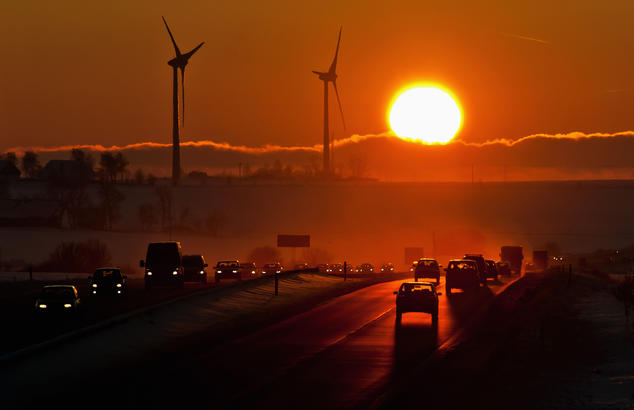Blog

The International Energy Agency (IEA) is perhaps the world’s foremost authority in global energy scenario building. Every year, energy experts read and comment on the IEA’s flagship report, The World Energy Outlook (WEO). According to the Financial Times, however, some investors think that the IEA’s modeling approach is biased in favor of fossil fuels.
Is the IEA really based in favor of fossil fuels? In what follows, I explain the nature of this debate and explain why I don’t think there is bias in the IEA scenarios.
How Does the IEA Produce the WEO?
WEO is based on a set of scenarios on where global energy markets might go under different policies. These scenarios are based on the IEA’s World Energy Model.
Here are the latest scenarios from the 2018 WEO:
- A business-as-usual scenario on where we might head without changes to national policies. According to the IEA, energy-related CO2 emissions would increase by about one-third between 2017-2040.
- A new policies scenario with some additional action to mitigate climate change. Here emissions would increase by less than one-tenth between 2017-2040.
- A sustainable development scenario that aims to limit climate change to below two degrees Celsius. In this scenario, countries of the world would take aggressive action and almost halve global emissions between 2017-2040.
Why Do Some People Complain the IEA Is Biased toward Fossil Fuels?
The complaint against the IEA boils down to the lack of a scenario that would be consistent with the goal of limiting global warming to 1.5 degrees Celsius. This extremely ambitious target is unlikely to be met even under the sustainable development scenario, which leaves the world with a 50% chance of reducing global warming to 1.7 degrees Celsius.
The complaint, then, is that the IEA is not providing a roadmap to reaching the 1.5 degree target. According to its detractors, the IEA should develop scenarios that show how the world can reach 1.5 degrees.
Is the Argument Against the IEA Warranted?
I think accusing IEA of a bias in favor of fossil fuels is unwarranted. The IEA’s job is to develop models that show where global energy markets might be heading, based on best available modeling techniques. If these models promise gloom and doom, it is the IEA’s responsibility to warn the world that a course correction is necessary. As Dr. Fatih Birol, the IEA Executive Director, notes in his response,
“Science tells us that we need an early peak and rapid decline in emissions, which is what the Sustainable Development Scenario delivers. But as our recent data for 2018 shows, and as we have been warning for years, the world is continuing to move in exactly the opposite direction, with a trajectory leading us towards warming of at least 2.7°C. We are highlighting this disconnect at every opportunity. The need to act is clear. At the IEA, our focus is on ambitious and pragmatic solutions that can make a real difference in the real world. We are stepping up our core work in support of sound and sustainable policy making, for instance via good data, training, advice and capacity building.”
This is sound reasoning. The IEA’s job is not to encourage investors to be more ambitious with implausible scenarios, but rather to assess possible futures based on current and plausible policy choices. The IEA needs to warn the world of rapid global warming without a course correction, and propose concrete next steps to solve the problem. The introduction of new policies and sustainable development scenarios achieves this goal.
Ambitious investors and other stakeholders should explore plausible scenarios to 1.5 degrees. In doing so, they would highlight the dramatic changes required to reach this extremely ambitious targets. But they should not expect the IEA to do so. The global climate debate needs both extreme ambition and tough-minded analysis, and the IEA is better suited for the latter job. Shooting the messenger does not change the fact that we are not on track to avoid dangerous climate disruption.
Photo credit: Håkan Jansson/Alamy.
***
Johannes Urpelainen is the Prince Sultan bin Abdulaziz Professor and Director of Energy, Resources and Environment at the Johns Hopkins School of Advanced International Studies. He is also the Founding Director of the Initiative for Sustainable Energy Policy (ISEP).
